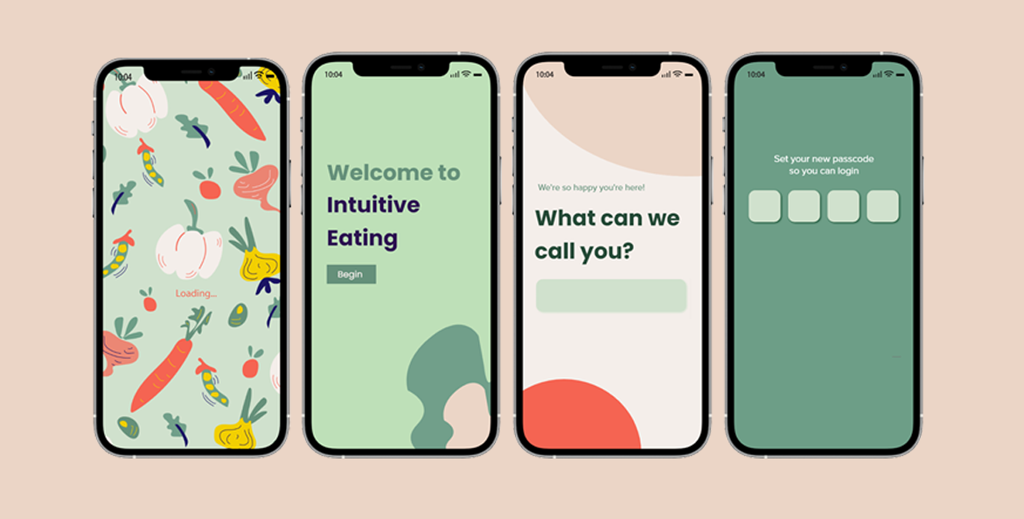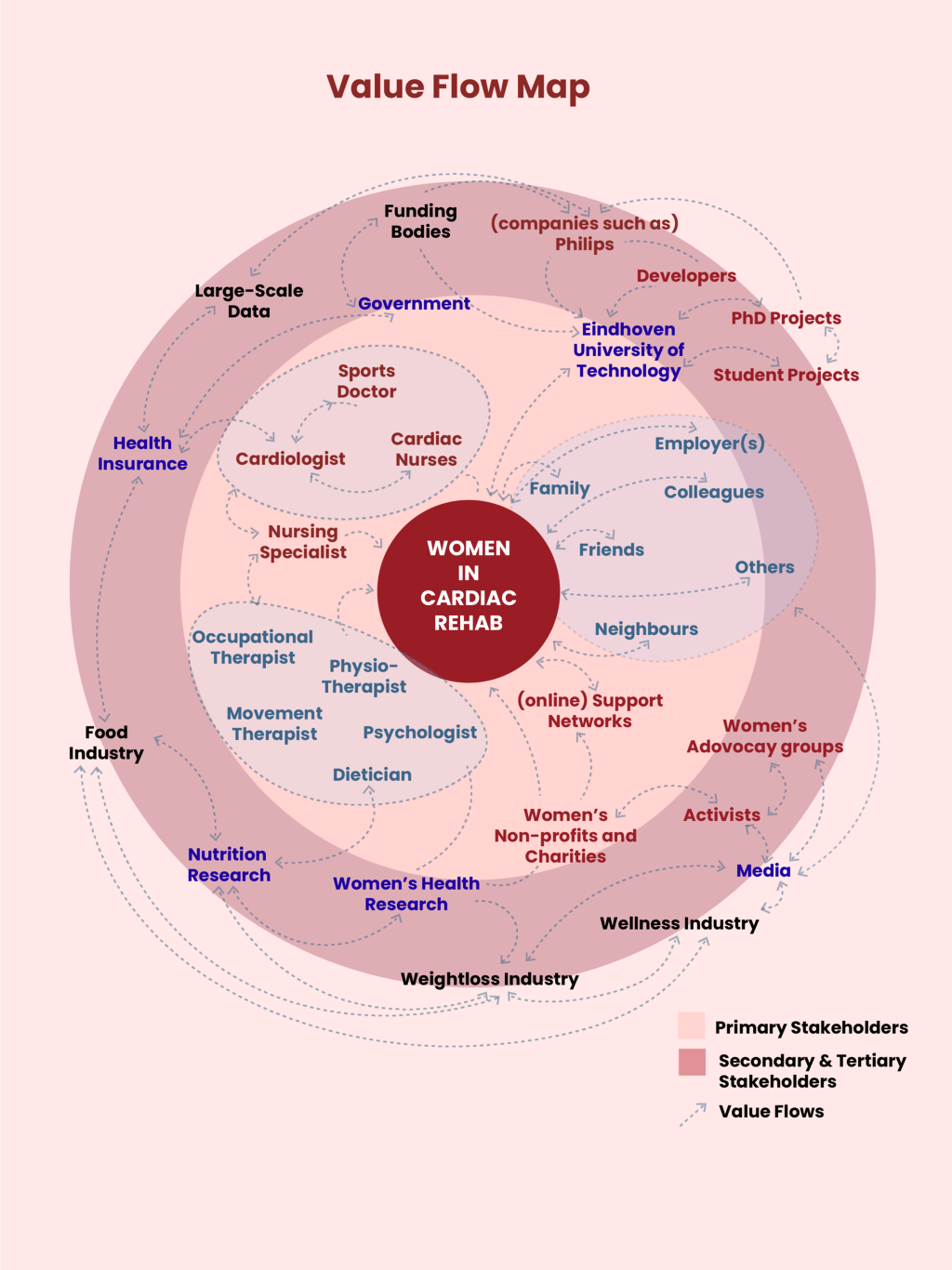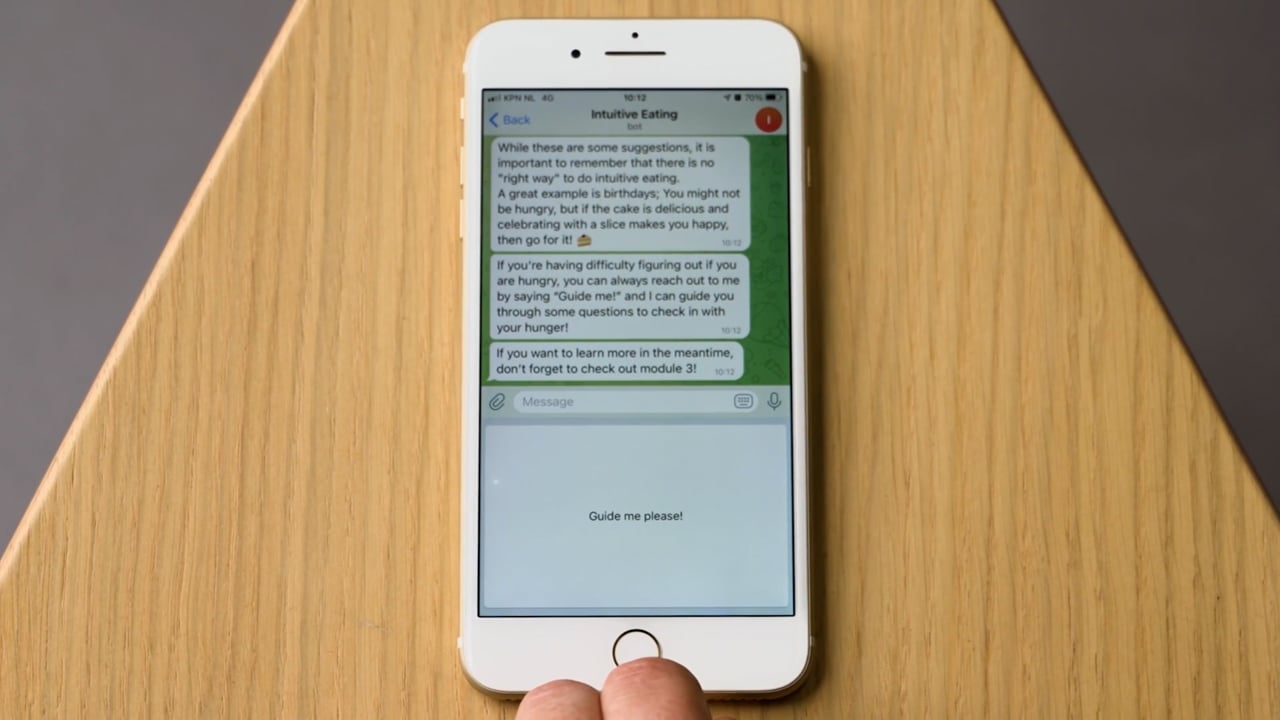When designing nutrition intervention technologies, we must acknowledge the complex relationship and history of many women with their diet-culture, their bodies and their eating behaviour. It is naïve and irresponsible to pretend that if they experience a major health event like a heart attack, this history simply disappears.
Therefore, when a woman enrols in cardiac rehabilitation and we only offer digital tools that promote restrictive, self-policing diets, we ignore women’s lived experience and fail them again. To re-think how technology can acknowledge this and support women in their relationship with nutrition during cardiac rehabilitation, I used the feminist design practice of Troubling Design (Søndergaard, 2020) to design a platform and chatbot introducing Intuitive Eating (Tribole & Resch,1995).
Troubling Design (Søndergaard, 2020) is a feminist design practice that “centers trouble as an implicit condition of designing ethical and responsible technologies for women’s health”. It encourages designers and researchers to “develop knowledge embedded in criticality and questioning the status quo”. In this project we reflect on why food tracking apps do not align with feminist values, and why we keep designing them even though most people think they just.. well.. suck.
The final design exploration is a mobile application platform that supports women in learning about intuitive eating through ten modules that follow Tribole and Resch’s (2012) work. Women are supported in re-meeting their bodies, divesting from diet culture, and discovering life beyond constant yo-yo dieting. A chatbot function supports women to intuitively tune back into hunger and fullness cues using the hunger scale, fostering self-trust.
As designers are asked to engage with increasingly complex topics like women’s health, they must become more comfortable with challenging the status quo. This means they must adapt their design methodologies to include room for discomfort, being critical of their own positionality, and engaging with the historical, cultural, and political context of the areas they work in. Introducing feminism into our design practices better equips designers to engage with lived experience and creates room in the design process for critical discussions when necessary.
Ultimately, this project sparks critical reflection and debate about the impact that nutrition tracking technologies have on the women we design them for, showing how designing nutrition tracking technologies is a distinctly feminist issue.
References
Søndergaard, M. L. J. (2020). Troubling Design: A Design Program for Designing with Women’s Health. ACM Transactions on Computer-Human Interaction (TOCHI), 27(4), 1-36.
Tribole, E., & Resch, E. (1995). Intuitive eating: a recovery book for the chronic dieter: rediscover the pleasures of eating and rebuild your body image.







